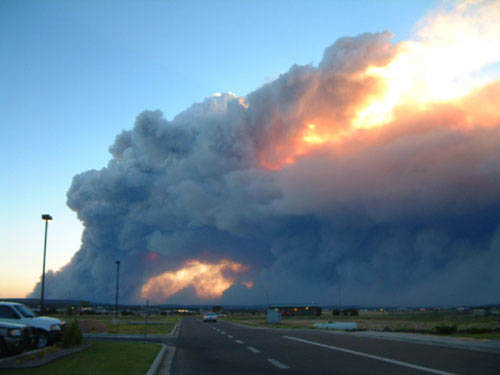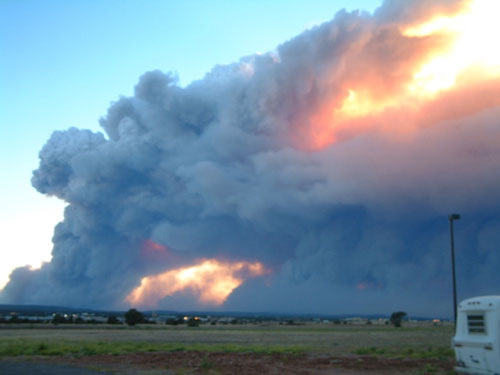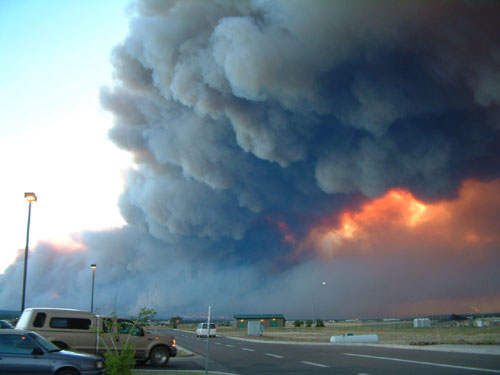Rodeo/Chediski
 |
| Rodeo Fire, June 2002. Photographs by Roy A. Hall, US Forest Service. |
Newspaper headlines with titles like "Hell Comes to the White Mountains" captured the sheer intensity and massive scope of the 2002 Rodeo-Chediski inferno that burned nearly 500,000 acres and consumed over 400 homes. The smoke from this wind-whipped, monstrous fire was experienced as far away as the New Mexico-Texas border.

Both fires were intentionally set by humans: one as a signal fire by a woman stranded in the woods and one by a contrite Apache firefighter hoping to earn fire pay.

A Fire With its own Weather System
"What happens in major fires, what they call the plume-dominated fires... Well, there's two things. You have vast acreage of trees burning, so you have lots of energy being released into the atmosphere... You have this convection column of heat rising into the air. We could look ninety miles to the south, and we can see that Rodeo Fire, the Chediski Fire, smoke from it just rising up 30,000 feet in the air. What it tends to do when it gets up that high, all the particulate matter — and you have moisture from what moisture that there is in the plants and trees that are burning — that tends to condense up in these high altitudes, and it forms a pyro-cumulus cloud. It actually forms its own little unique clouds.
"Once this system starts, the rising column of heat can collapse on itself, too, because the hot air will cool when it reaches a certain level. Sometimes that collapses, and you get this downdraft... these micro-bursts. And those things can just collapse onto a fire with tremendous speeds, and you have these hurricane-force winds that can uproot full-grown trees, and it just turns into a firestorm. It's particularly dangerous for the crews on the ground.
"One odd thing about these major fires is that most of the fatalities that happen don't occur in those situations, because everybody's on their toes... All the resources in the free world can't help. They just have to stand back and watch it in awe until it makes its run and dies down."
—Scott Thybony